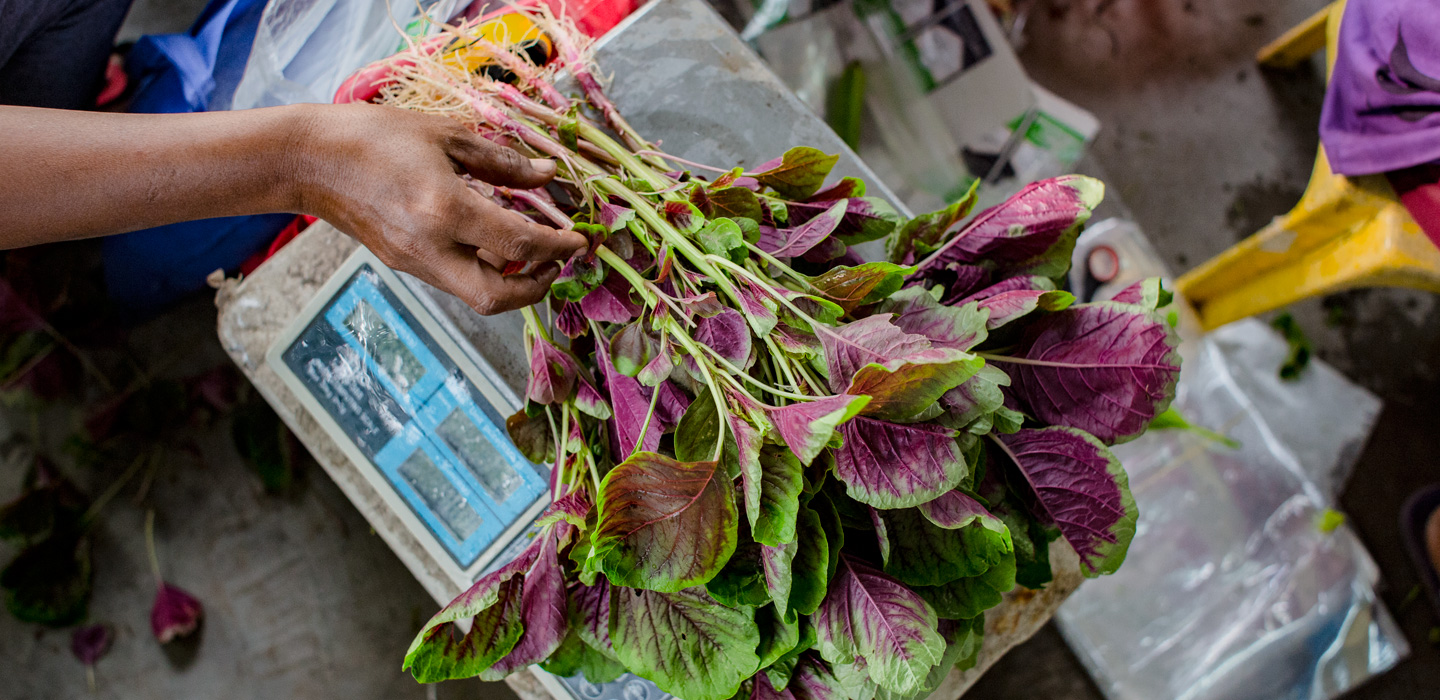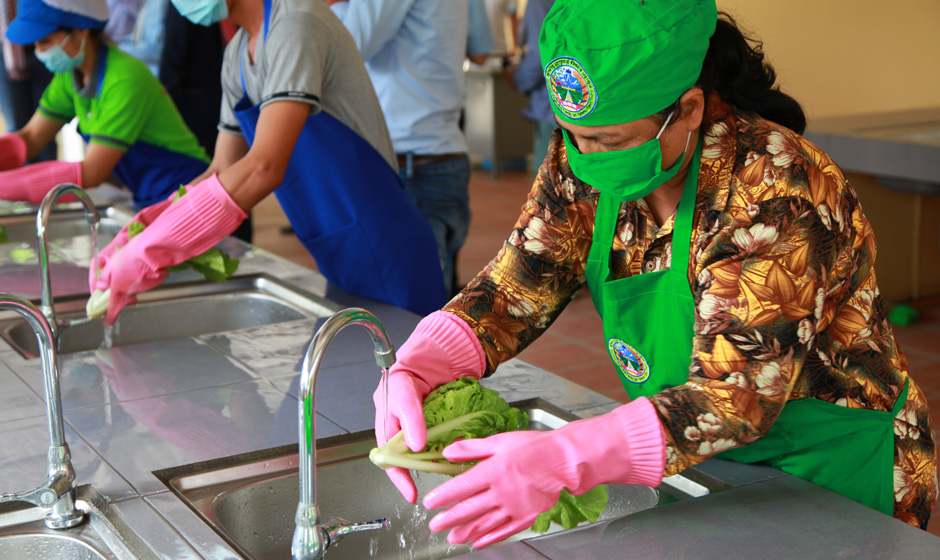Keeping food on the table and preventing food loss when business is not as usual
IFAD Asset Request Portlet
Asset Publisher
Keeping food on the table and preventing food loss when business is not as usual
Estimated reading time: 4 minutes
We are living in difficult times. Due to the COVID-19 pandemic and all the fallout that has ensued, nothing is quite as easy as it was – unless, of course, you can do it from the comfort of your home, armed with a smartphone and a good internet connection. We have learned to improvise, and to work under complex conditions. We have worried about our family members near and far.
Earlier in the year we read about supermarket shelves being bare in Europe and North America, but little media focus has been given to small-scale producers, rural communities and the very real interruptions in food production, harvesting and food availability in the global south.
According to recent estimates, before the pandemic, 14 per cent of the world’s food production was lost before it reached the consumer. This is a critical area that needs attention. As natural resources become scarcer and more precious, we cannot afford to use land, water and fuel to produce food that nobody will get to eat.
For those of us working in rural development, the idea that millions of farmers and farm workers around the world were (and in some cases still are) being told to “stay home” has been especially worrying. It isn’t just that the stay-at-home orders would keep people from earning a daily salary, or that their “home” may not be comfortable or spacious.
For the people who run the 500 million small farms the world over, there are miles and miles of fields to till, irrigate and plant, and tons and tons of produce to harvest, sort and transport to market. There are also very short margins of time in which to get each of the stages right and be able to deliver fresh, nutritious food to communities and households near and far. And in doing this work that is so essential to global food security, these farmers also cope with numerous challenges beyond COVID-19: climate change and irregular weather patterns, floods, droughts and increased pests, all disrupting the cycle of food production.
We know that a large percentage of the world’s food is grown on millions of small plots in remote rural locations across the globe. When farmers are not able to purchase seeds to plant their crops, those crops do not get planted. When workers are not able to get to the fields, food does not get harvested. When transport is blocked, produce does not make it to market. When markets can’t open or people can’t reach them, food does not get purchased – and often goes to waste.
IFAD has been working especially hard in the countries that it invests in to make sure that small-scale producers have the support they need to continue to produce and sell nutritious, affordable food while making a decent living. Incorporating digital technologies in the way farmers “normally” do business can help, as can government policies that support small-scale producers and rural workers in carrying out their work safely.
In Bangladesh, the IFAD team worked with the government to set up a certified transport and logistics system to safely move agricultural inputs (seeds, fertilizer, etc.), produce and livestock in and out of rural areas. The system was quickly adopted and guaranteed minimal disruption of farming supplies being moved into rural areas and food products reaching urban and semi-urban markets.
IFAD has long worked with farmers’ groups and associations to help them aggregate product, connect with value chain operators and advocate for themselves. This “strength in numbers” has helped farmers’ groups negotiate better prices, better policies and better faring practices that safeguard the environment. One of the most effective farmers’ groups in Asia is the Asian Farmers’ Association for Sustainable Rural Development, which receives IFAD’s support through a large regional grant. It boasts a number of innovative initiatives, including the online vegetable markets in the Philippines: an accommodation for the pandemic crisis that allowed urban customers in Manila to buy the food they would normally buy in their local markets, but could not due to lockdown measures.

In Cambodia, making essential information for farmers and the consumer available online has helped bridge some of the gaps that have interrupted the value chain from field to table. The country is establishing an “Agricultural Big Data Platform” and IFAD, together with the national Ministry of Agriculture, has developed and launched a dedicated app for farmers that provides technical assistance on farming methods and matches harvests to available markets.
In India, several IFAD-supported programmes have utilized digital platforms to link farmers directly with consumers. In Jharkhand, farmers are selling produce through a locally developed online app. In Maharashtra, groups of producers are selling fresh produce through WhatsApp.
In some countries, including the Pacific islands, the pandemic has put a halt to the tourism industry, and a large portion of employment has dried up overnight. In Fiji, faced with a lack of income, many have turned to backyard gardening in order to feed their families. The government is pairing up with a tech company to develop a digital agriculture platform that connects local people producing a surplus of fresh fruits and vegetables in their backyard plots with potential consumers in their community.
There is no one-size-fits-all solution to making sure that small-scale food producers in Asia and the Pacific are able to safely work, eat and provide the region with the fresh and nutritious food that the population needs to stay healthy. It is important that we continue to support small-scale producers and farm workers and prevent food loss by keeping local food value chains functioning.
Publication date: 29 September 2020